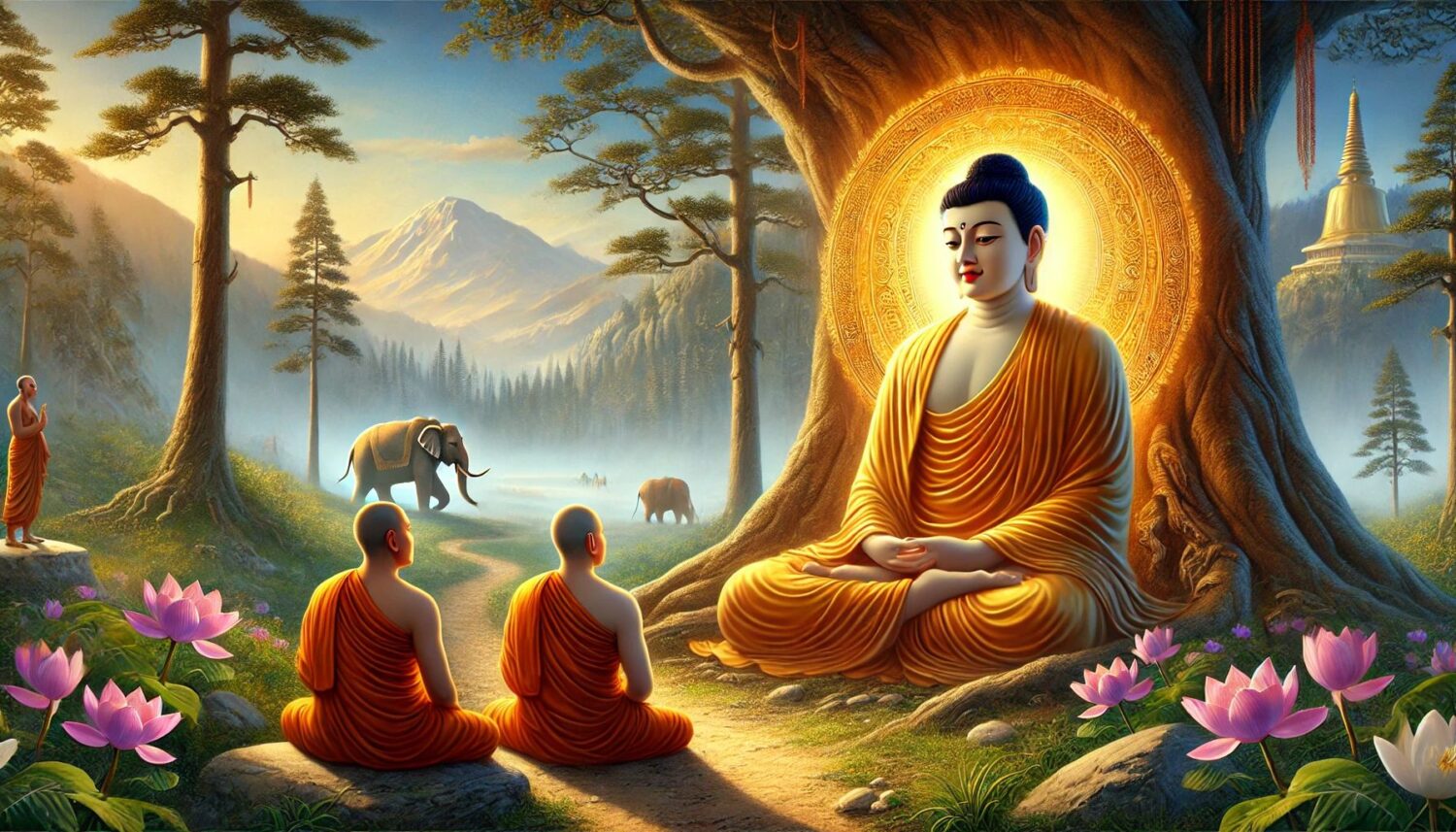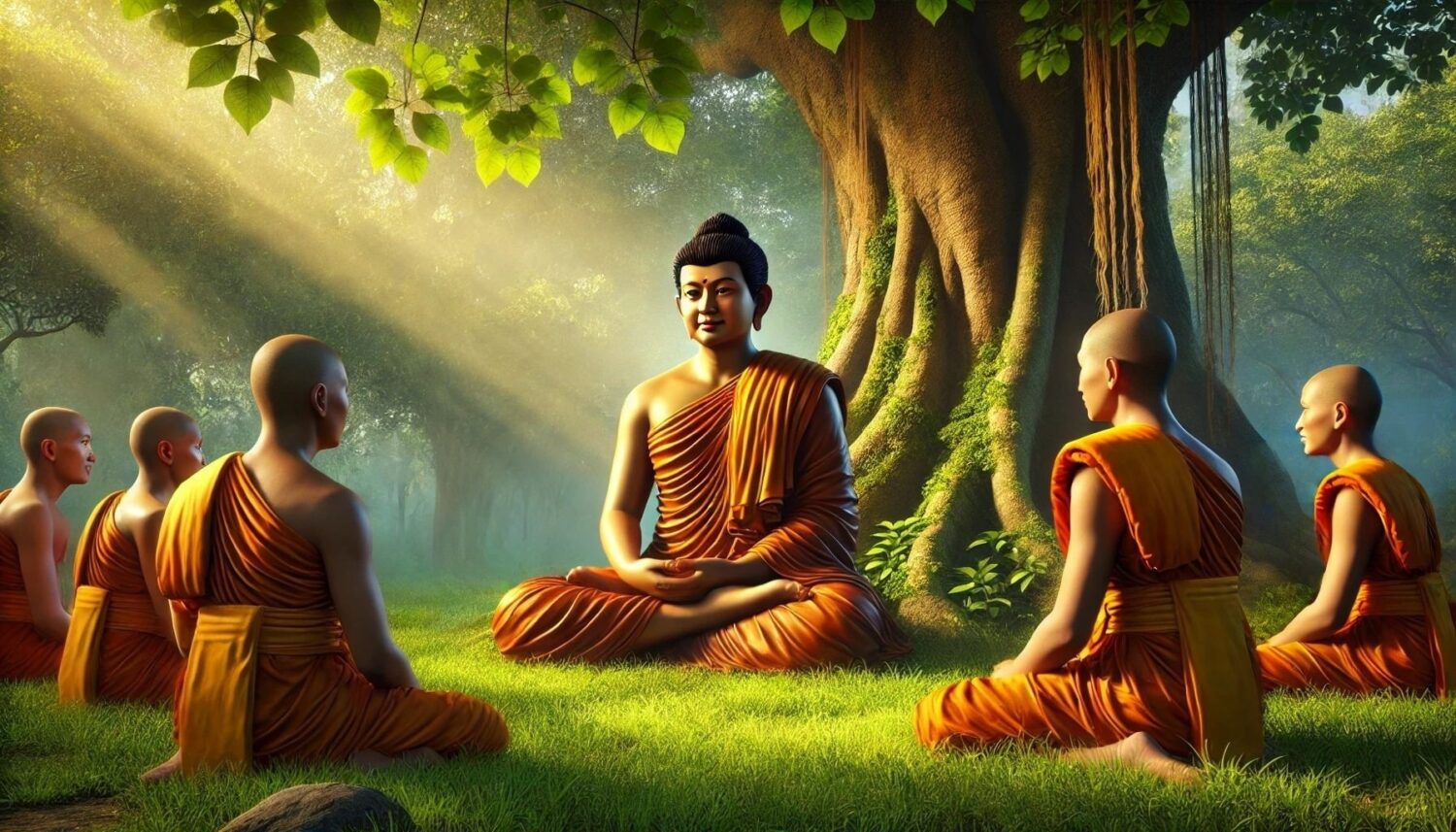
Date: 11/16/2024 11/17/2024
Location: Star Lake Meditation Center
Teacher: Otto Huang
Dharma Talk
Hopo’s Incorrect Theory of Retribution for Evil Karma
Once, the Buddha visited his hometown of Kapilavastu and stayed with his disciples in the Nigrodha Grove Monastery south of the city.
One afternoon, a follower of the heretical teacher Nigantha, a Shakya named Hopo, came to the Nigrodha Grove Monastery for a stroll. In the lecture hall, he happened to meet the Venerable Mahamaudgalyayana, who was gathered with the bhikkhus for a meeting. After a greeting, Venerable Mahamaudgalyayana initiated a discussion:
“Hopo! If a bhikkhu carefully guards his words and actions, his thoughts, and is free from greed and ignorance—that is, if enlightenment has arisen in him—do you think such a bhikkhu would still be reborn with impurities in a future life?”
“Venerable One! In my view, regardless of the achievements in this life, anyone who still has unwholesome karma from a previous life that has not yet been repaid will still be reborn in a future life due to that karma.”
At that moment, the Buddha finished his afternoon meditation and came to the lecture hall. Everyone rose to greet him, temporarily pausing the conversation. After the Buddha inquired about their discussion, he picked up the topic.
Since Hopo was a student of the heretical teacher Nigantha, with differing views, the Buddha asked Hopo to approach the discussion with a questioning mind, to clarify what needed clarification, and to accept what was reasonable. Hopo agreed readily, and the Buddha began:
“Hopo! All forms of attachment and suffering fueled by actions, thoughts, greed, and ignorance would not exist without the initiation by these actions, thoughts, greed, and ignorance.
When one no longer creates new karmic actions through words, actions, thoughts, greed, or ignorance, and past karmic tendencies are extinguished under the clear awareness of enlightenment, this is the way a wise person ceases to suffer. Hopo! Do you think such a person would still create causes for rebirth with impurities?”
“Venerable One! No, they would not,” Hopo replied.
“Hopo! Such a bhikkhu with a mind truly liberated dwells continually in the six pure abodes. What are these six abodes? They are the six sense contacts: seeing, hearing, smelling, tasting, touching, and thinking. In these experiences, one remains free from joy or sorrow, with clear mindfulness and detachment.
For such a liberated person, ignorance has ended, enlightenment has arisen, and they clearly understand that this is their last body. After the death of this body, there will be no further continuation in a future life. At that moment, all experiences come to a stop, becoming cool; ultimately, there is complete cooling and peace.
“Hopo! This is like the shadow of a tree, which exists only because of the tree. If someone were to chop the tree’s roots with an ax, uproot it, cut it into pieces, shred it, dry it, and burn it to ashes, finally scattering the ashes in the wind or throwing them into water—what do you think?
Would the tree’s shadow still exist at that time? The shadow exists because of the tree, and when the tree is chopped down, cut, and burned to ashes, the existence of the shadow is utterly extinguished. Is that correct?”
At that moment, Hopo suddenly understood, realizing how ignorant he had been in his devotion to Nigantha. He praised the Buddha as an enlightened one, a beacon in the darkness, a guide for the lost, and expressed his desire to take refuge in the Three Jewels (the Buddha, the Dharma, and the Sangha) as a lay disciple for life.

